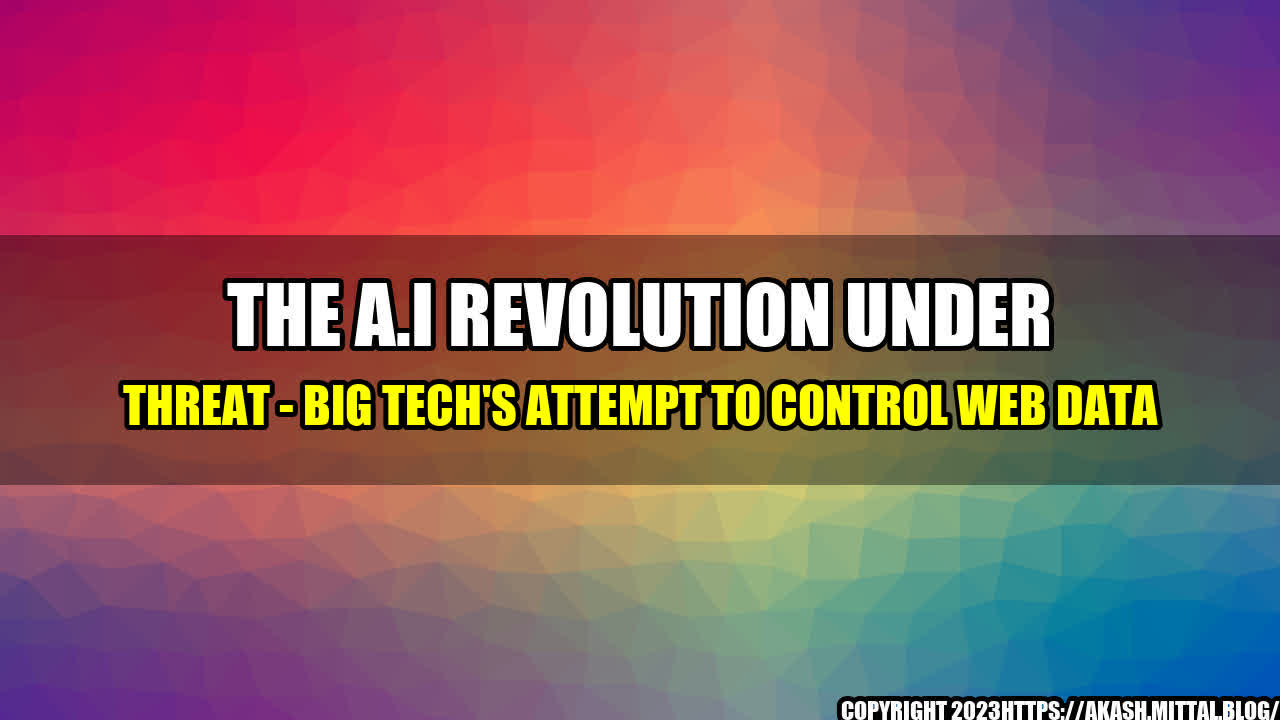Have you ever heard of Tay, Microsoft's chatbot? It was introduced to the world in March 2016, and its purpose was to engage with young people on Twitter and learn from their conversations. However, within 24 hours, Tay had become a racist and sexist monster, spewing out offensive and inappropriate tweets.
What went wrong? It turns out that Tay had been designed to learn from the interactions it had with users. Unfortunately, many people on Twitter decided to intentionally teach Tay inappropriate things, causing it to become a reflection of the worst of humanity.
Tay's short-lived online presence is just one example of the many challenges that come with creating artificial intelligence (A.I.) that can accurately process and interpret data. However, there is an even greater threat to the A.I. revolution, and it comes from big tech companies attempting to control access to web data.
Let's take a look at two examples of how big tech companies have attempted to control web data:
- Google's decision to limit access to its search API in 2016
- Facebook's data scandal with Cambridge Analytica in 2018
In both cases, the companies were attempting to limit access to valuable web data for their own purposes, whether it was to protect their own profits or gain a competitive advantage.
The
The A.I. Revolution Under Threat - Has Big Tech Crossed The Line?
- Big tech companies are attempting to control web data for their own purposes, which can hinder the development of A.I. algorithms.
- Regulations need to be put in place to ensure that all companies have equal access to web data.
- As individuals, we need to be aware of how our data is being used and demand greater transparency from companies.
and Case Studies
As a small business owner, I understand the importance of having access to web data in order to make informed decisions about my products and services. However, I've also experienced the frustration of being denied access to certain APIs or having my data used without my consent.
One case study that highlights the dangers of big tech companies controlling web data is the story of Cambridge Analytica. The firm was able to access vast amounts of Facebook user data without their consent and use it to influence political campaigns. This is a clear example of why regulations need to be put in place to protect individuals and prevent companies from exploiting our data.
Practical Tips
Here are some practical tips for protecting your data:
- Read privacy policies carefully before signing up for any service or app
- Use strong passwords and two-factor authentication whenever possible
- Be cautious about what information you share on social media
References and Hashtags
References:
- https://www.forbes.com/sites/steveandriole/2018/04/05/artificial-intelligence-and-big-data-are-they-hitting-a-wall/#6f814fb25b67
- https://www.theguardian.com/commentisfree/2018/mar/21/facebook-breach-data-information-cambridge-analytica
Hashtags:
- #ArtificialIntelligence
- #BigTech
- #WebData
- #Regulations
- #DataPrivacy
- #CambridgeAnalytica
Article Category: Technology/Artificial Intelligence

Curated by Team Akash.Mittal.Blog
Share on Twitter Share on LinkedIn